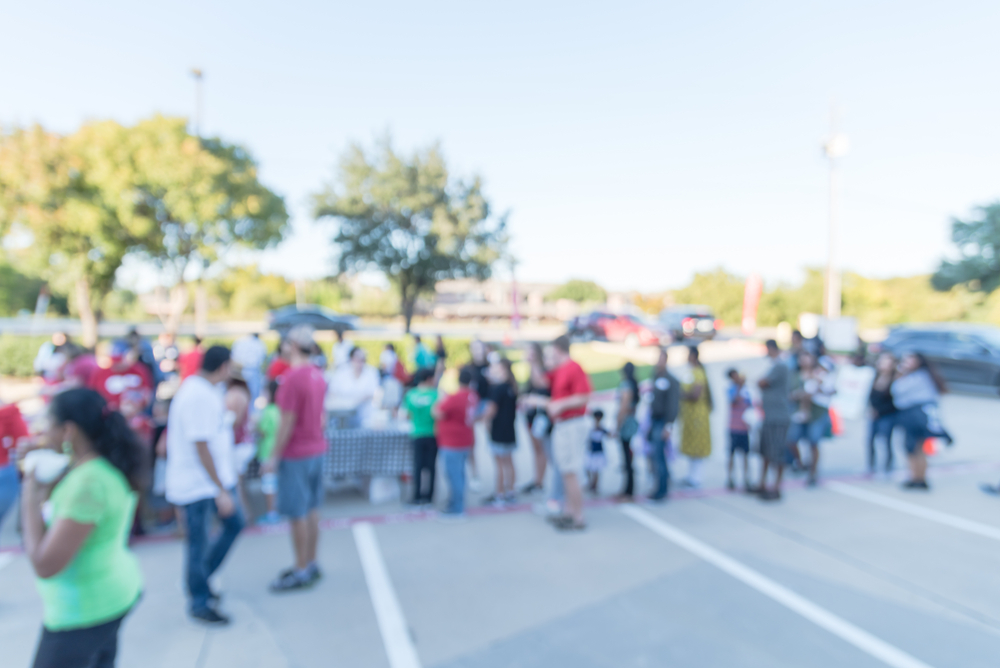The first people arrived before 2am.
By 4am, more than 100 people stood waiting in the darkness outside the ice-hockey stadium.
By 7am, the line stretched for more than a mile, heading north to the river, then west down the riverbank, then all around a sports centre parking lot, then past the squash courts, the boxing club, the theatre, under the Pont de Saint-Georges, before doubling back up a riverside corniche.
By early afternoon last Saturday, nearly 3,000 residents of Geneva, one of the world’s richest cities, had filtered through the stadium to receive a food parcel worth about $25. Some carried babies. Some were in wheelchairs. Some had waited for more than six hours.
In medical terms, Geneva has not been as gripped by the coronavirus crisis as other areas of western Europe. In the city and its surrounding suburbs, fewer than 300 residents have died in a population of half a million.
But in economic terms the crisis has been ruinous for Geneva’s underclass — the undocumented and underpaid workers often forgotten about in a city better known for its bankers, watchmakers and UN officials.
Thousands of people working in the shadows of the Swiss economy lost their jobs overnight in March, as hotels, restaurants and families fired their undocumented cleaners and maids in response to a lockdown enforced by the central Swiss government.
Unable to draw on state support, most were then forced to rely on charity to survive. Ultimately, that demand led volunteers and city officials to set up a weekly food bank at the ice-hockey stadium near the river.
“If you wanted to pictogram Geneva, what would you put?” said Laura Cotton, a Swiss-British hospital decorator who volunteers at the stadium. “Money, money, money. And, OK — cheese and chocolate.”
“But Covid has showed the flip-side,” Cotton added.
The coronavirus infection rate has plummeted in Geneva in recent weeks, allowing the authorities to markedly ease social distancing restrictions.
But the economic impact on the city’s poorest remains dire.
Sukhee Shinendorj, a 38-year-old from Mongolia, was already living on the cusp of poverty even before coronavirus reached Switzerland. He earned about $1,600 a month as a restaurant cleaner — barely enough to feed his two children in expensive Geneva. Then in March the restaurant where he worked shut, prompting his boss to fire him. Now Shinendorj fears losing his apartment, and relies on the stadium handouts for food.
On Saturday, he woke up at 1am, and walked two miles to the stadium to try and beat the line. But there were already several people waiting.
“Catastrophe,” Shinendorj said of his situation. “It’s a catastrophe.”
Behind him in the darkness, a giant Rolex logo shone from the watchmaker’s headquarters across the street.
The scenes at the stadium have been jarring for some Genevans, forced for the first time to recognise profound social inequalities they previously ignored or dismissed.
Geneva is home to several arms of the UN, including the WHO, the International Organisation for Migration and the UN High Commissioner for Human Rights. But the ethos of those institutions has not been entirely embedded within the city at large.
While Swiss citizens and businesses received financial support during the lockdown from the authorities, undocumented foreign workers were left to fend for themselves.
Even foreigners with official work permits were wary of applying for state help, fearful that it would make it harder for them to renew their permits in the future. Others said they were simply unaware of the possibility.
Nubiany Rocha, a pregnant Brazilian nanny, arrived at the stadium at 5am, pushing her 8-month-old daughter’s carriage. Rocha had a valid work permit until 2022, she said, but didn’t know that might make her eligible for state aid.
A group of seasoned activists first spotted Geneva’s need for the food aid. In late March, campaigners from Caravane De Solidarité began handing out food in the street.
But that led to the arrest of one of the group’s leaders, for flouting social distancing regulations. After a public backlash, the city authorities stepped in.
New York Times News Service










